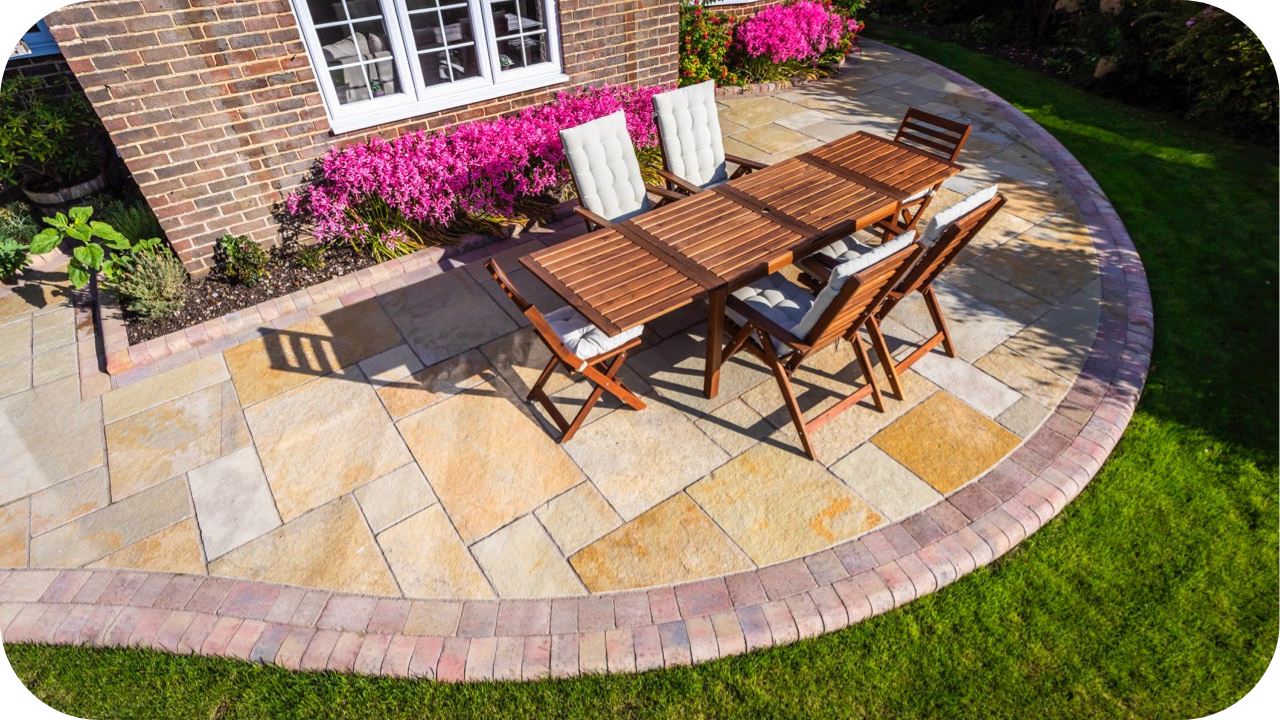
Choosing the perfect stone tiles for your home can be overwhelming, with many options.
Making the wrong choice can lead to costly mistakes, mismatched aesthetics, and high maintenance.
This comprehensive guide will help you navigate the various types of stone tiles, finishes, and factors to consider, ensuring you make an informed decision that enhances your home’s beauty and functionality.
Understanding Stone Tile Options
Understanding the options available when choosing stone tiles for your home is crucial. Each type of stone has unique characteristics that can influence its suitability for various applications.
- Granite is known for its durability and resistance to scratches and heat, making it an excellent choice for kitchen countertops and high-traffic areas. Its natural patterns and colours add a touch of elegance to any space.
- Limestone’s soft beige and grey tones offer a more subtle, earthy appearance. It’s ideal for indoor flooring and wall cladding but requires regular sealing to maintain its appearance and prevent stains.
- Sandstone is prized for its rustic charm and is perfect for outdoor patios and driveways. However, it is more porous and needs more maintenance to prevent weathering.
- Quartz tiles are engineered to provide a consistent look and superior strength. They are non-porous, stain-resistant, easy to maintain, and suitable for indoor and outdoor use.
- Travertine is characterized by distinctive veining and warm hues. It’s versatile for floors and walls but requires sealing due to its porous nature.
Factors to Consider When Choosing Stone Tiles
Selecting suitable stone tiles for your home involves several key considerations to ensure you achieve both aesthetic appeal and practicality.
- Durability and Hardness are paramount, especially for high-traffic areas. Stones like granite and quartz are tough and resistant to wear, making them ideal for floors and countertops. Softer stones like limestone and sandstone may require more care and are better suited for low-traffic areas.
- Maintenance and Care are crucial factors. Some stones, such as travertine and limestone, are porous and need regular sealing to prevent stains and damage. In contrast, quartz and granite are less permeable and easier to maintain.
- Aesthetic Appeal is another critical consideration. Stone tiles come in a variety of colours, patterns, and finishes. Choosing a style that complements your home’s design and meets your taste is essential.
- Cost and Budget can significantly influence your choice. Natural stones vary widely in price, with options to fit different budgets. Consider the long-term value and durability of the stone against the initial cost.
- Environmental Impact is increasingly important. Opt for sustainably sourced stones and consider the ecological footprint of extraction and transportation. By balancing these factors, you can select stone tiles that enhance your home’s beauty and meet practical and ethical standards.
Best Applications for Different Stone Tiles
Selecting the right stone tile for your home involves understanding its best applications based on its characteristics. Here’s a detailed look at how different types of stone tiles can be used effectively:
Granite
Granite is renowned for its durability and resistance to scratches and heat, making it ideal for high-traffic areas such as kitchens and hallways. Its low porosity makes it an excellent choice for countertops, which can easily withstand spills and stains.
Additionally, granite is a popular option for wall cladding indoors and outdoors, offering a sleek and modern look while providing robustness that can handle weather conditions and heavy use.
Marble
It is celebrated for its luxurious and timeless appearance, perfect for low-traffic areas such as formal dining rooms and bathrooms. Its elegance adds a touch of sophistication to any space, although it requires regular sealing to maintain its polished finish.
Marble provides a striking visual impact for wall cladding, and it is ideal for creating focal points or accent walls that exude grandeur.
Travertine
Travertine tiles are known for their natural texture and warmth, making them suitable for indoor spaces like living rooms and outdoor areas like patios. When adequately sealed, their porous surface offers a non-slip quality that is advantageous in wet environments.
Travertine is also an excellent choice for paving, as it provides both durability and aesthetic appeal for garden paths, driveways, and other exterior surfaces.
Limestone
Limestone features soft, natural tones that are ideal for creating a serene and inviting atmosphere in bedrooms and offices. Its understated elegance works well for wall cladding, adding a subtle and timeless aesthetic to interior and exterior walls.
Limestone’s ability to blend seamlessly with various decor styles makes it a versatile option for enhancing the beauty and comfort of any space.
Installation Tips and Best Practices
Proper installation of stone tiles is crucial for ensuring their longevity and maintaining their aesthetic appeal. Here are some essential tips and best practices.
- Preparing the Surface is the first critical step. Ensure that the substrate is level, clean, and dry. Any moisture or unevenness can lead to tile shifting or cracking over time. Consider using a moisture barrier for outdoor installations to protect against ground moisture.
- Choosing the Right Adhesive and Grout is essential. Different stones may require specific adhesives to ensure a secure bond. For instance, use a thin-set mortar for most stone tiles, but consult with a professional for specific recommendations based on the stone type. Grout selection is equally essential; opt for high-quality, stain-resistant grout to maintain the look and durability of your tiles.
- Professional Installation vs. DIY should be carefully considered. While DIY can be cost-effective, professional installers bring expertise that ensures precision and quality. They can handle complex cuts, ensure even spacing, and adequately seal tiles to prevent future issues.
- Sealing and Maintenance should be noticed. Most stone tiles, especially porous ones like travertine and limestone, need sealing to protect against stains and damage. Regular maintenance, including cleaning with appropriate products, will keep your stone tiles looking pristine for years to come.
Conclusion
Choosing the perfect stone tiles for your home involves carefully considering various factors. By understanding your options and following best practices, you can enhance both beauty and functionality.
Ready to transform your space? Contact our experts at Splendour In Stone Melbourne for personalised advice and top-quality stone tiles tailored to your needs.
More To Explore

Combining Natural Stone with Wood for a Modern Look
Imagine a living space where the raw, earthy beauty of wood meets the sleek elegance of natural stone. This powerful combination creates a perfect balance

Benefits of Natural Stone Pavers
Ever wondered why natural stone pavers are becoming a top choice for outdoor spaces? These durable, naturally quarried materials—like granite, sandstone, or bluestone—offer both strength


